The ‘Mother of All Bombs’ is a signal that Washington is not going to abandon its effort to stabilise Afghanistan, writes Bruce Riedel. What is needed next is a coherent strategy to deal with the mothership of the Afghan Taliban, the deep state in Pakistan, Riedel argues. This piece was originally published by The Economic Times.
Eight years ago, President Barack Obama asked me to chair an urgent inter-agency review of American policy toward Afghanistan and Pakistan. He had discovered on his first visit to the Pentagon that the war in Afghanistan was going much worse than his predecessor had admitted.
Pakistan was abetting the Afghan Taliban in the war with Nato forces, and the US military needed immediate and substantial reinforcements. Worse, al-Qaeda was running rampant inside Pakistan, posing an urgent threat to the US homeland.
The president announced the results of the inter-agency study in a speech to the nation in March 2009, just before a Nato summit in France. This year, President Donald Trump inherits a war that is still dangerous.
The administration’s decision to use the most lethal conventional bomb against the Islamic State (IS) and Afghan Taliban tunnels indicates the administration is not going to abandon the war or reduce the American military presence.
Instead, Washington is likely to look for innovative ways to break the deadlock. Using a Massive Ordinance Air Bomb (Moab) for the first time ever should be only an instrument in a larger strategy to deal with the longest war in American history. It is too early to tell what strategy the administration will choose. But there is one already on the table in Washington.
Last fall, I collaborated with a number of my fellow Afghanistan and Pakistan watchers in the think tank community in Washington on a review of US policy toward Pakistan and its crucial role in the Afghan war. Scholars from the Heritage Foundation, the Hudson Institute, Brookings and other institutions came together.
We did so as scholars — not institutions —and engaged in a civil debate. My compliments to the co-chairs of this important piece, Lisa Curtis and Husain Haqqani. Curtis is now reported to be likely to join the National Security Council to deal with South Asia affairs.
The report, ‘A New US Approach to Pakistan: Enforcing Aid Conditions without Cutting Ties’ (Hudson Institute, goo.gl/M2F4Dq), concludes that Pakistani sanctuaries and safe havens for the Afghan Taliban remain the single-most-difficult challenge to the Nato effort to stabilise Afghanistan.
With US, or Against US
Efforts to encourage the Pakistan Army to curtail assistance to the Haqqani network, the Quetta shura and the entire Taliban have failed, despite over $25 billion in US assistance to Pakistan by two presidents over 15 years.
The longest war in US history is, in fact, a proxy war with Pakistan. A new approach is, therefore, critical. The report urges a more vigorous and tougher effort to encourage Pakistan to break ties with the Taliban and other terrorist groups based in Pakistan, like the Lashkar-e-Taiba group that attacked Mumbai in November 2008.
These groups have enjoyed Pakistani backing for decades. The civilian government led by Prime Minister Nawaz Sharif has very little role in this patronage network. Rather, it’s the so-called ‘deep state’ of the Inter-Services Intelligence (ISI) and the army high command that’s in charge. So, the report recommends curtailing assistance to the military as long as it assists groups that kill Americans, either GIs in Afghanistan or Americans in India.
It recommends revoking Pakistan’s status as a Major Non-Nato ally in six months if the army does not change. A review of whether Pakistan should be considered a state sponsor of terrorism — a draconian measure — should not be ruled out if conditions don’t improve.
The report also lays out a roadmap for change for Pakistan to take. The US’ quarrel is not with the Pakistani people or their elected leadership, but with the generals who back terrorists.
A crucial recommendation is to use unilateral action against the Taliban safe havens inside Pakistan. Last May, Obama authorised a drone strike that killed the head of the Afghan Taliban, Mullah Akhtar Mansour, inside Pakistan. The strike was the one and only such mission Obama ordered in the eight years against the Taliban leadership in their lairs in Pakistan.
The Curtis-Haqqani report recommends conducting such strikes on a recurring basis to remove the safety from the safe havens. A sustained effort to disrupt the sanctuaries would make the Taliban’s war much harder to prosecute and make the deep state’s patronage more difficult and expensive.
Using almost entirely such unilateral means, Obama succeeded in significantly diminishing the al-Qaeda threat in Pakistan over the last eight years. The SEAL team that delivered justice to Osama bin Laden in Abbottabad, the home of the Pakistani equivalent of West Point, was the dramatic high point of Obama’s war.
He specifically ordered that no one in Pakistan be informed of the commandos operation until they were homeward bound out of Pakistan’s air space.
Strategy That Doesn’t Bomb
The US is safer now for his leadership. But we have a long way to go with Pakistan. It’s critical to get this right: for Pakistan, as both a victim and patron of terrorism, for Afghanistan, for the region, for the US, and beyond.
The ‘Mother of All Bombs’ is a signal that Washington is not going to abandon its effort to stabilise Afghanistan. What is needed next is a coherent strategy to deal with the mothership of the Afghan Taliban, the deep state in Pakistan.
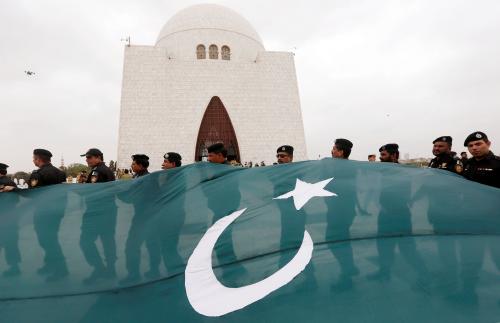
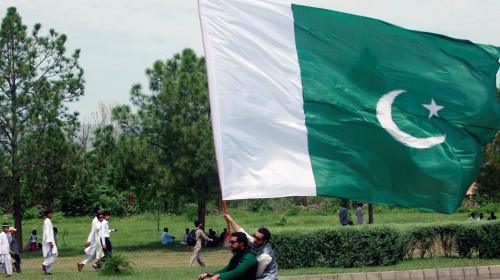
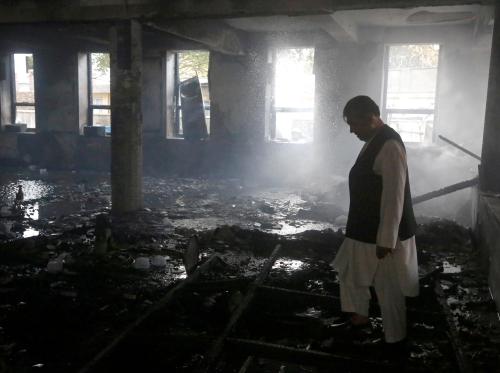
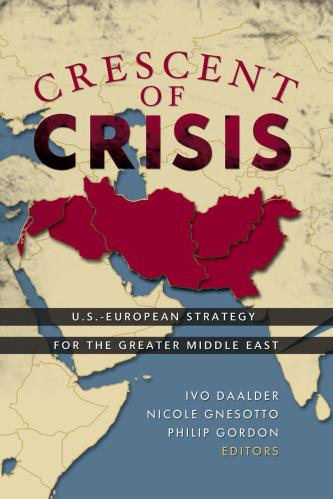
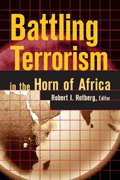


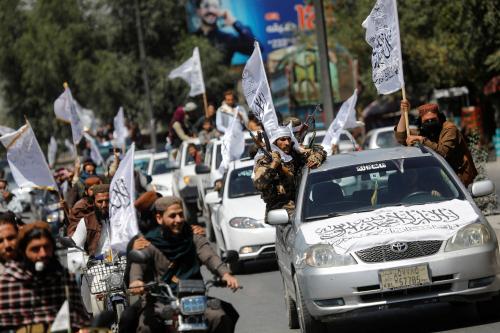
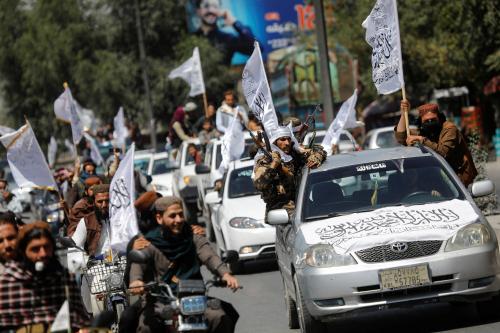
Commentary
Op-edThe US isn’t abandoning Afghanistan. It now needs a strategy to tackle the Pakistani deep state
April 15, 2017